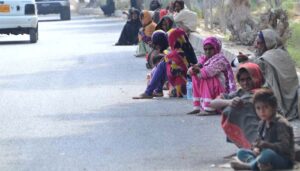A growing issue for Pakistan on the international stage is not just political or economic—it’s the rising trend of its citizens being involved in organized begging abroad. The problem has become so widespread that countries like Saudi Arabia, the UAE, Malaysia, and Turkey have taken official notice. Over the past year, thousands of Pakistanis have been deported, particularly from Gulf nations, for their involvement in street begging—often coordinated and managed through illegal networks.
Saudi Arabia alone deported more than 4,000 Pakistani nationals in recent months, many of whom were found misusing religious visas. Malaysia has also cracked down on similar cases, leading to stricter immigration policies for Pakistani visitors. This trend is now starting to affect the country’s international image and its citizens’ ability to travel freely.
In response to growing international pressure, Pakistan’s Interior Ministry has stepped in. Over 4,000 individuals believed to be involved in organized begging have been placed on the Exit Control List (ECL), barring them from leaving the country. Authorities are also looking to tighten passport regulations and crack down on human trafficking rings that exploit vulnerable individuals under the guise of overseas employment or religious travel.
These developments highlight the urgent need for long-term solutions—both in terms of economic opportunity and social support. Unless Pakistan can address the underlying causes, such as poverty and unemployment, the consequences of this issue may continue to harm its global standing and restrict its citizens’ mobility.



